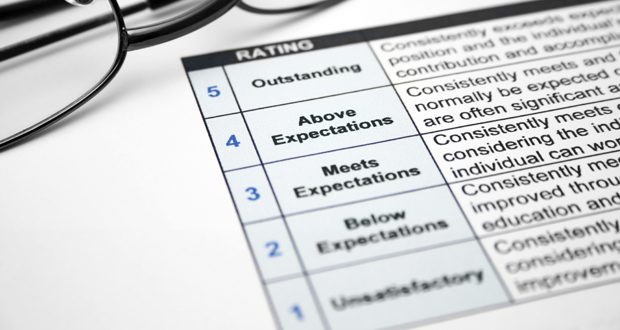Should the Annual Review Be a Thing of the Past?

The annual performance review: It’s a source of dread and anxiety for managers and employees alike. A handful of large companies, including General Electric, are realizing the process is fraught, but there are other organizations that insist on keeping it as the primary source for evaluating their staff’s progress and performance.
The workplace of today is drastically different than it was decades ago. So it goes to reason that the way we monitor the progress of organizational and individual goals should also change.
We’re in an age where the job that many employees were hired for is no longer an accurate description of what they do day in and day out. Organizations of all sizes are facing disruptions, technological advances and regulatory shifts that require them to be nimble and ready for constant change.
Your staff needs to approach their careers the same way – ready to evolve and grow in response to the changes around them. The leaders and managers within your organization can help your staff along that path, as well as keep them motivated about your organization’s success, through performance management that is more focused on regular, open communication.
Focus on Ongoing Communication
Let’s be honest, annual reviews have not kept up with the pace of change in the workplace. They’re out of date and ineffective. By the time they are completed and you’ve had a chance to meet with your staff to discuss the results, they’ve moved on. There are new goals to accomplish and projects to tackle.
The key for any organization wanting to succeed in today’s marketplace is consistent, quality communication. For your team, maybe that is a combination of informal weekly check-ins and more formal monthly or quarterly evaluations. Maybe regular staff meetings are interspersed with one-on-one talks. Every organization has to find the balance that is right for them based on their needs at any given time.
Some managers may be hesitant to embrace this approach. Yes, it could take more time on the management side, and time is an extremely valuable resource to every organization. But if your team is more aware of individual and team processes and progress, and if ideas and insights are able to be gathered on a more regular basis, it will be worth the investment.
Measure Performance in Real-Time
By evaluating your organization and staff’s progress more regularly, it allows you to be more agile and quickly adapt. This is another example of where the data your organization collects or has access to can help you make better decisions.
When it comes to team performance, leaders can monitor an individual’s work on a more regular basis and respond with speed and accuracy if numbers trend in a negative direction. After all, waiting until the end of the year to find out a staff member has been struggling for months can cause unnecessary stress on that individual, as well as your whole organization.
By monitoring the numbers and identifying a potential issue early on, you can identify if a staff member is being overloaded or needs additional training in any certain area. This allows your organization to get back on track, and gives your team a sense of value and the confidence and skill set to address any project head on.
Manager and Mentor
The kind of communication we’re talking about above means that managers have an opportunity to play a larger role in their staff’s career development. Workers today, particularly millennials, have a desire to always be learning and growing. They want to do their jobs, and they want to do them well. They want to take on new projects and roles that will earn them experiences and help them find purpose.
While annual performance reviews tend to be more one-sided, meeting regularly with your staff helps open a dialogue where you can serve not only as a manager, but as a mentor as well. Sometimes your staff just needs you to listen. Other times, what starts as a conversation may lead to a more collaborative approach to your organization’s goals.
Above all, make sure your staff knows your leaders in your organization have an open-door policy. Regularly scheduled meetings are essential, but you can’t plan on your calendar when a challenge will arise – whether it be professional or personal. Be a sounding board for your staff, and make sure they know they can come to you and talk out their concerns.
Focus on the Future
Finally, one of the biggest reasons that managers and staff alike struggle with the annual performance review is that it focuses too much on the past. Pay increases and promotions can be tied to a system that doesn’t take into account all aspects of a staff member’s impact on your organization. The annual review doesn’t look at their current performance – perhaps a staff member has recently shown great improvement and a negative annual review would only discourage them. It also doesn’t give any hint to how their talents can be best used in the future.
So if you want your staff to be innovative and ahead of the curve, it’s important that your process for evaluating their performance and providing critical career feedback be the same.


